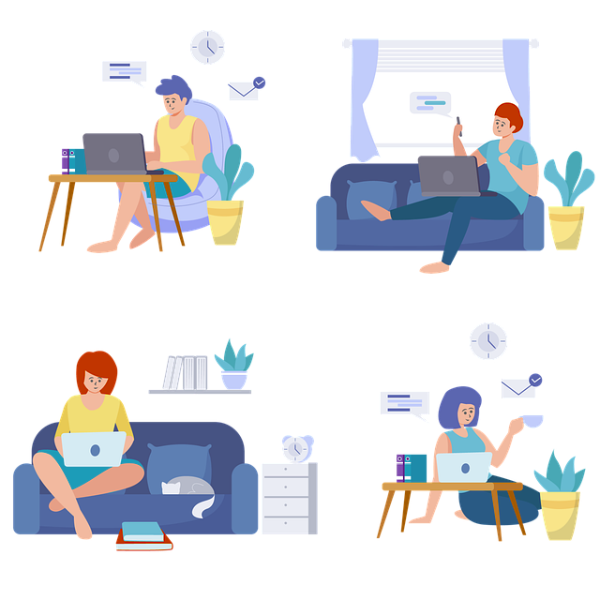Remote Learning Is Not Necessarily Online Learning
 The COVID-19 pandemic forced schools and corporate trainers to move their content online. Teaching and training went remote. But are remote and online learning the same thing? I see the terms used almost interchangeably.
The COVID-19 pandemic forced schools and corporate trainers to move their content online. Teaching and training went remote. But are remote and online learning the same thing? I see the terms used almost interchangeably.
Remote teaching, training, or learning has been done before there was an Internet to get online. Correspondence models and instructional TV/video predate the Internet. Today, we are using Skype and Zoom lectures, apps and tools but remote learning is still considered different from online learning.
I have taken classes and done training remotely that don't have many of the elements of a classroom experience. Things like reading assignments and writing assignments, assessments, collaboration on work, or full discussion boards are not used. For example, I have watched a series of history lectures that were mostly one-way experiences. I watched and although there was an opportunity to ask questions in chat or a Q&A time if you were watching live, this is not online learning.
Online learning should be more robust. It resembles more of what we consider to be "education" and would include interactive modules, assessments based on real-world scenarios, discussion forums designed to discuss and solve problems, synchronous learning sessions that involve discussions and problem-solving. There may still be live or recorded lectures, but that is not the only component.
Remote learning certainly has a place, especially in corporate and training situations. This can be pre-recorded content that can be used as needed, has a shelf life, and can be viewed again by users if necessary. Training on using software is a good example of content that works as remote learning. "But it's all online," you might say, "Why isn't it online learning?" Well, it is and it isn't.
Educators have long been trying to elevate engagement in online learning. It is not training. It requires a teacher or facilitator. Some elements are synchronous. Progress is monitored.
I hedged on my title for this post - "Remote Learning Is Not Necessarily Online Learning" - because fortunately, some training uses the elements that we consider to be integral to online learning. And, unfortunately, some online learning seems to be more like just remote training. And training and education have both been experimenting with hybrid models where learners and instructors can be in the same classroom working together but be extending the classroom online.
Remote learning is not inferior to online learning. It has its place in the broader "learning" experience. Remote learners sitting on their couch at home with a laptop may look the same as students taking an online course, but what is being provided to them, what they are expected to do with that content and what is the final expectations for that learning should be different. Putting a label on learning platforms is tricky, but it is important to know the differences.


